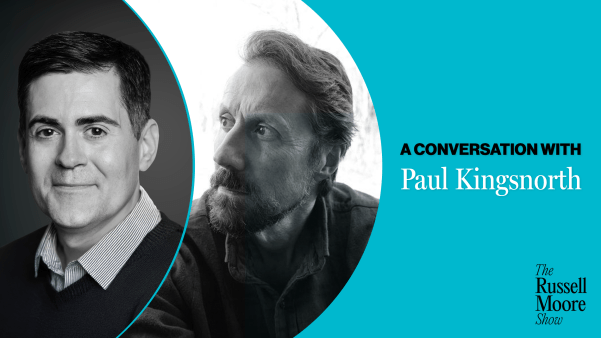Type "Calvinism" into any web browser and you're likely to find multiple misconceptions about Calvinism and Reformed theology. Ironically, many come from the pens and mouths of Calvinists themselves. In Ten Myths About Calvinism: Recovering the Breadth of the Reformed Tradition (IVP Academic), Kenneth J. Stewart demonstrates that confusion and misapprehension reign among adherents as much, if not more, than among outsiders and opponents.
Ten Myths About Calvinism: Recovering the Breadth of the Reformed Tradition
IVP Academic
301 pages
$8.97
Stewart, professor of theology at Covenant College, a Reformed school in Lookout Mountain, Georgia, knows the terrain. Ten Myths, an extremely well-researched and lively tour of Reformed theology's history, sets the record straight regarding Calvinism's heroes, legends, beliefs, and fluctuating fortunes. The movement, Stewart argues, is currently riding the latest of six "waves of Calvinist resurgence" since the French Revolution. But all is not well. "It is no time," Stewart warns, "for triumphalism."
Much to my surprise, I discovered the author, a dedicated convert to Calvinism, chastising many who proudly call themselves Reformed. Even when writing about non-Calvinists' misconceptions, he seems intent on calling the new Calvinists and their leaders to a course correction. "We need fewer angular, sharp-elbowed Calvinists who glory in what distinguishes their stance from others," Stewart argues, "and a lot more supporters of the Reformed faith who rejoice in what they hold in common with others." What non-Calvinist wouldn't agree?
I should confess before continuing that I am one of those non-Calvinists, although I have tried to maintain a friendly, irenic tone. I find Stewart's approach refreshing; it gives me hope that both sides can be self-critical and fair as they discuss their differences.
Room for Debate
Four of Stewart's ten myths are held by many Calvinists themselves. First, John Calvin and his Genevan experiment do not determine the entire Reformed tradition. According to Stewart, "Calvinism" is something of a misnomer. Certain Reformed leaders disagreed with Calvin's theology and did not regard him as their spokesman. After Calvin, the movement branched off in several directions, not always remaining strictly faithful to his example.
Stewart's second myth might also come as a shock: Calvin's acolytes do not uniformly share his view of predestination. Many Reformed theologians have argued for single predestination (God has marked some for salvation) rather than Calvin's double predestination (God has marked some for salvation and some for damnation).
Stewart calls for all Calvinists to be more historically aware, to stop thinking of Calvinism as a system derived straightforwardly from the pages of the Bible.
The third myth is that TULIP must be the benchmark of the truly Reformed. (TULIP stands for the doctrines of Total Depravity, Unconditional Election, Limited Atonement, Irresistible Grace, and Perseverance of the Saints.) Stewart's thorough history shows that the acronym probably was coined around 1913. Many enthusiastic converts among the "young, restless, and Reformed" will be shocked to hear a sympathetic voice arguing that "TULIP cannot be allowed to function as a creed." According to Stewart, Reformed theologians past and present have wrongly turned this five-point doctrine into a "Procrustean formula"—an inflexible yardstick of belief.
Stewart's fourth myth is that Calvinists dislike revivals and awakenings. He attributes this misunderstanding to contemporary Presbyterian and Reformed dismay over the manipulative methods used by some revivalists, pointing to the targeting of 18th-century evangelist Charles Finney by anti-revival Calvinists. Stewart recalls the leadership of Calvinist heroes like Jonathan Edwards and George Whitefield in the First Great Awakening of the 1740s. "Today, by contrast," he laments, "so many have adopted the view that revival is a dark secret, a part of our Reformed family history best kept in the closet."
Neither I nor any informed critic of Calvinism has held or promoted any of Stewart's myths. Admittedly, however, many untutored persons, not least among them committed Calvinists, have fallen under their sway. Stewart wrote this book in large part simply to correct his co-religionists.
Calvinists need not worry, however, as Ten Myths also defends the Reformed tradition. Stewart does not belong to the revisionist crowd that apologizes for Calvinism's most controversial doctrines. He has not abandoned Calvin, predestination, or TULIP. He affirms Calvin as a major part of the Reformed tradition while arguing, like many of his Reformed contemporaries, against slavish imitation. He embraces the doctrine of predestination as unconditional election of all individuals, either to heaven or hell, while contending for enough breadth within the Reformed tradition to favor single predestination. And he criticizes TULIP mainly for its ungenerous language and extreme interpretations, preferring, for example, "definite atonement" or "particular redemption" to "limited atonement," because the latter seems to limit the value of Christ's death.
Sense of History
By correcting contemporary Calvinist myths about Calvinism, Stewart intends to overcome a "self-imposed ghettoization" that may evidence "an unacknowledged remnant of the fundamentalist era of the early twentieth century." He calls for all Calvinists to be more historically aware, to stop thinking of Calvinism as a system derived straightforwardly from the pages of the Bible. However, he still affirms the essential Calvinist view of God's sovereignty over salvation known as monergism—that God saves people without their cooperation. One has to wonder if his call for a more generous, conciliatory Calvinism augurs any willingness to seriously reconsider its substance.
Perhaps the most interesting portion of Ten Myths is the final chapter, titled "Recovering Our Bearings: Calvinism in the Twenty-First Century." There Stewart's agenda becomes clear. He writes not so much to answer Calvinism's critics as to urge several adjustments to contemporary Calvinism. Clearly he believes that even misunderstandings of Calvinism can teach Reformed Christians important lessons.
Stewart chides major personalities of the current Calvinist upsurge for thinking as though it "appeared Melchizedek-like, 'without genealogy.'?" He names two heroes of the mostly 20-something crowd of new Calvinists, John Piper and Mark Driscoll, as culprits of this de-historicized vision of contemporary Calvinism. Stewart concludes that the new Calvinists need to recognize how their movement "stands in succession to and dependency on … earlier movements." Recounting the stories of five earlier Calvinist upsurges, he calls on contemporary Calvinists to admit interdependence between past and present, show loyalty to both, eschew triumphalism, and practice unity and forbearance.
Young, restless, Reformed Calvinists—indeed, all of Geneva's progeny—ought to heed the sage advice of this Reformed theology professor and scholar of Calvinist history: "If a Calvinist movement stresses only the reiteration of ideas and doctrines from long ago, its tendency will be antiquarian and fogeyish; its devotees might actually wish to be living in a different time and place! On the other hand, if a Calvinist movement glories chiefly in its affinities with the contemporary scene … the necessary link with historical markers of the movement may be very hard to locate."
In fact, every Christian movement needs to recognize that there is really nothing new under the sun—a recognition that cultivates humility and willingness to learn from past mistakes.
Roger E. Olson is professor of theology at George W. Truett Theological Seminary and author of the forthcoming Against Calvinism (Zondervan).
Copyright © 2011 Christianity Today. Click for reprint information.
Related Elsewhere:
Ten Myths About Calvinism is available from ChristianBook.com and other book retailers.
Previous articles on the Reformed include:
Spotlight: Reformed Rap and Hip-Hop | Christian genre pioneers are taking their cues from Calvinist leaders. (May 2, 2011)
Teaching a Calvinist to Dance | In Pentecostal worship, my Reformed theology finds its groove. (May 16, 2008)
Young, Restless, Reformed | Calvinism is making a comeback—and shaking up the church. (September 22, 2006)











